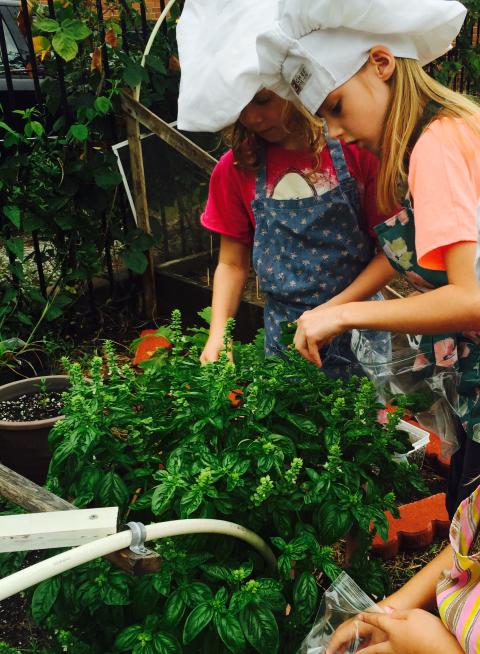
The Soulard School
The Culinary Arts program began as a farm-to-table lunch program that provides students with a framework for learning about the connections between the food we eat, our bodies and our environment.
As part of the extended core curriculum of the school, Culinary Arts has always been foundational to the school but the framework continues to grow in scope. Its weekly classroom nutrition component now includes a deeper focus on food literacy, and the effect of food on our bodies. The goal is to help students understand the importance of making healthy choices and empowering them with the knowledge to do so.
We have now begun to enrich the CA program by connecting and deepening many of the components that have always been present. We have begun to grow more of our own food used to prepare meals moving us to a seed to table lunch program. We have also added school yard chickens who produce eggs for our program. Another goal is to expand our growing methods indoors and out to allow for greater food production, classroom involvement and cross-curricular activities. Increased growing efforts will hopefully allow us to provide CSA opportunities for our greater school community in the future.
We believe that no single approach in education theory or application is best. In fact, adherence to one distorts the ability to critically examine any others or incorporate new information. Our evolving approach permeates every aspect of our school experience.
Respect is at the core of our philosophy – respect for each person, for life, and for the environment. Respect for each student’s individuality, learning style and intentions lay at the foundation of our approach. We believe that this approach supports the attitudes and behaviors needed today as well as those that will be needed in the future. These include: personal empowerment and cultural pluralism; global thinking and ecological awareness; flexibility and adaptability; creativity and innovation; respect, caring, and responsibility; and competencies of all kinds.
Our education is based on an innovative model that we created when The Soulard School opened in 2005. This model is built on three core pillars: equitable tuition, integrated studies curriculum and community engagement. It is this unique model that allows us to create original programming, that empowers teachers, engages families and includes students. Through innovative leadership programs, relevant community partnerships and authentic experiences that elevate every type of learner, our model results in children
who know they can have an impact.




